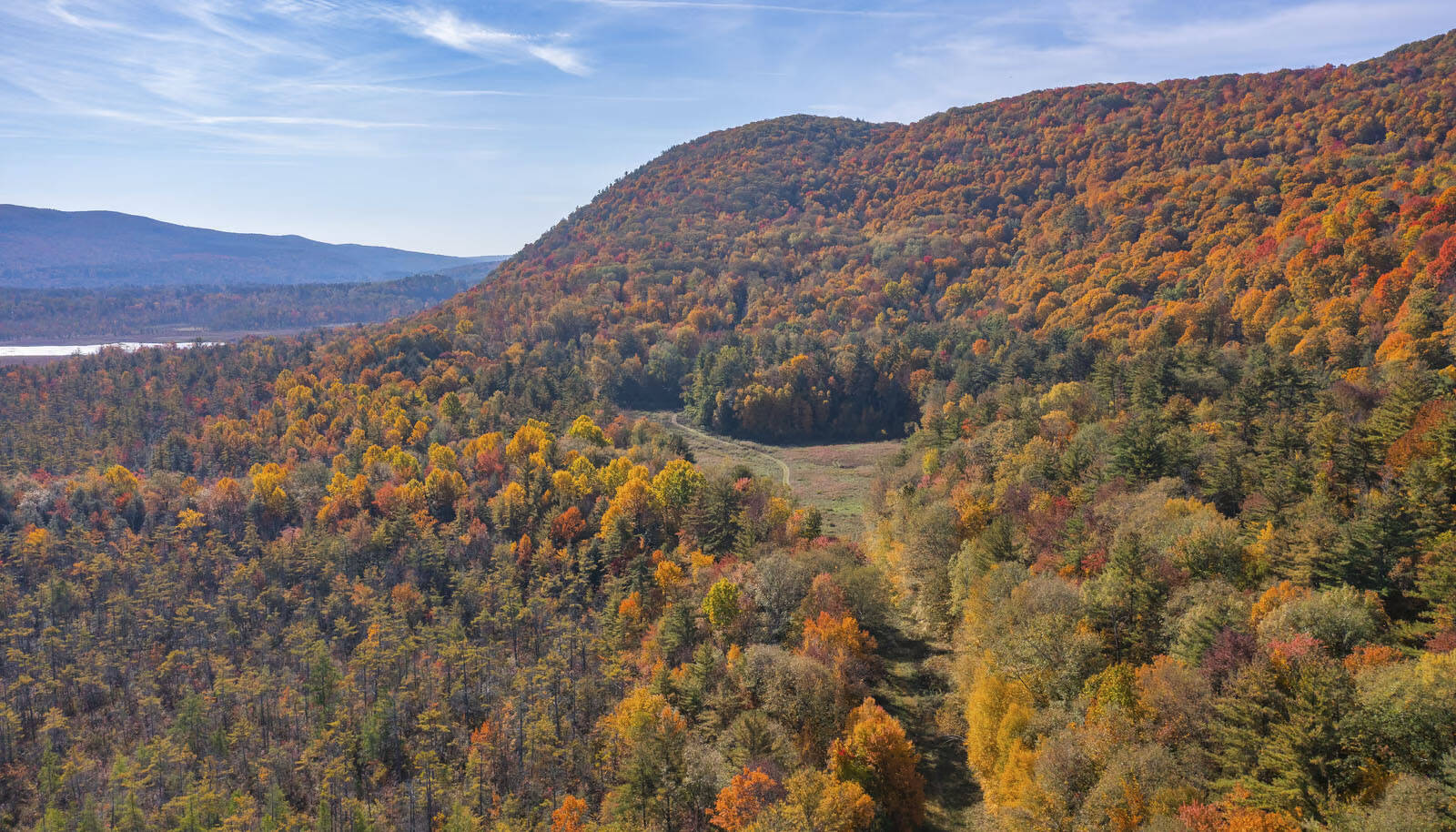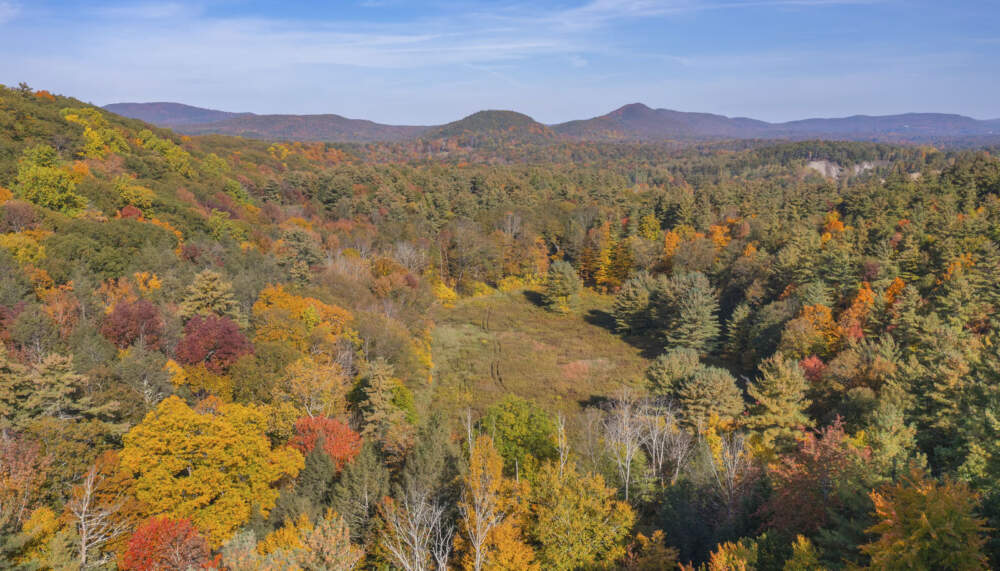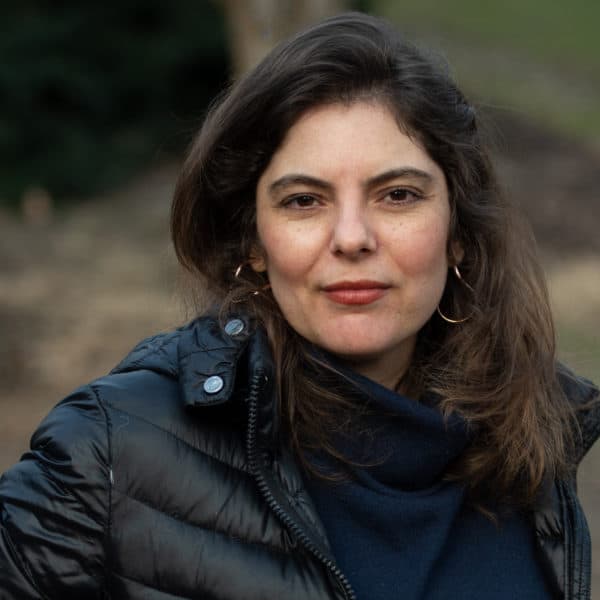Advertisement
Indigenous group plans to buy back some ancestral lands in Mass. and build climate resilience

The Stockbridge-Munsee Band of Mohicans plans to buy back some of its original land in the Berkshires. The community received a $2.26 million state grant intended to help communities prepare for climate change.
“We believe that it is our responsibility to be land stewards and to advocate for future generations,” said Shannon Holsey, president of the Stockbridge-Munsee Band of Mohicans, at an event in Stockbridge that announced the latest round of Municipal Vulnerability Preparedness state grants.
The Indigenous community plans to purchase a 351-acre property near Monument Mountain in Stockbridge. The project is one of 109 climate resiliency projects awarded a total of $31.5 million.
“As we work to address the climate crisis, we have an opportunity to right historical wrongs,” said Gov. Maura Healey in a press release.
The traditional territory of the Stockbridge-Munsee Band of Mohicans included land that’s now part of five states; it spanned southwest Vermont, the entire Hudson River Valley of New York, Western Massachusetts up to the Connecticut River Valley, Northwest Connecticut, and portions of New Jersey.
“This is a historic moment for us because it is the first time that we've been able to regain our ability to steward our homeland over here in Wnahktukuk or Stockbridge, which was the last stronghold of our nation before we were completely dispossessed and forced to remove,” said Monique Tyndall, director of cultural affairs for the Stockbridge-Munsee Band of Mohicans. In the 1800s, the community relocated to Wisconsin.
She added the initiative goes a step further from so-called “cultural easements,” which are where an Indigenous community is allowed to collect or harvest plants but the land still belongs to an agency or a private landowner. Indigenous ownership of the land shifts the power dynamics and gives the community full agency to preserve and care for the land, she said.

The community plans to use Indigenous traditional knowledge and science to guide their efforts to restore the land. One project involves mitigating the spread of invasive species in the area and encouraging the growth of native plants such as the milkweed, known to attract pollinators, such as the declining population of Monarch butterflies.
There are over 1,500 enlisted members of the Indigenous nation and Tyndall wants every tribal citizen to be able to visit the land.
She said she always heard from older generations that one day they would come back to their ancestral land but she didn’t think they would have the opportunity to steward the land within her lifetime.
“It is a very beautiful experience to come back,” she said “I think there's all different types of emotion because there's always the reminder of the dispossession.”
Still, she said the community feels overjoyed for the opportunity to care for the land: "Being in the homelands allows one to reconnect, reflect and aspire for what the future will hold and its possibilities."
